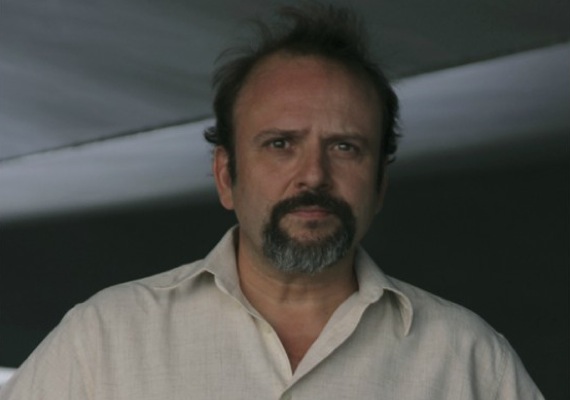Juan Cavestany • Director
“I don’t want to be free!”
- Juan Cavestany, the man behind Esa sensación, spills the beans about this film made up of three independent points of view: his and those of young filmmakers Pablo Hernando and Julián Génisson

Esa sensación [+see also:
film review
trailer
interview: Juan Cavestany
film profile] pocketed the Movistar Plus+ Award at the 19th Málaga Spanish Film Festival, after it screened at the International Film Festival Rotterdam (read the news), and is being released in Spanish theatres on Friday 13 May. The father of this “little angel” is Juan Cavestany, who recruited Julián Génisson (one of the members of Canódromo Abandonado) and Pablo Hernando (winner of the New Waves Special Award at Seville in 2015 with Berserker [+see also:
film review
trailer
interview: Pablo Hernando
film profile]).
Cineuropa: Were you the main driving force behind Esa sensación?
Juan Cavestany: Yes; I produced it, and I called Pablo and Julián: we shared a certain tragic sense of humour, a sense of embarrassment and shyness. The seeds of Esa sensación were sown when Génisson asked the question, “Are we having a good time?” That difficulty in identifying your own feelings, with hints of comedy and tragedy, really defines the humour in the movie: how complicated it is to know how we’re doing, and having the feeling that everyone else is feeling better than we are, that they’re having a fantastic time and are really enjoying themselves. We also question the notion of enjoyment: why do we try to convey the fact that we’re having fun and we’re inside the system? The humour hinges on feeling uncomfortable, inadequate and awkward, and that’s something I will carry on exploring in the series Vergüenza (read the news).
Did you find your young colleagues’ energy infectious?
They see me as an older guy whom they look up to, because I make movies with simple camerawork, such as Dispongo de barcos [+see also:
trailer
film profile]. As for me, I’m like a vampire, as I feed off other people’s energy when I connect with someone young – and I like that, despite the fact that they’re 30 years old and are already pretty experienced. But there was also some friction in that shake-up of generations: right from the start, the movie was an experiment based on the idea that each part was an independent entity, but during the edit, we had to sacrifice that to create a whole, which led to arguments, as you’d expect, because each fragment had its own personality.
And how did you marry these three stories when it came to joining them together?
The step outlines were written once we already knew full well that we would edit it by alternating the stories, and the fact that we didn’t look for any connecting threads – instead abruptly changing the pace, style and nature of each part – worked in favour of making the film more coherent: if we had tried to fit them together, that’s a gimmick that you would have noticed.
As a filmmaker, do you feel free?
Not at all! Does anyone feel free? We are slaves to a system, or even to our own freedom: our vices, desires and vanity... Esa sensación’s run is mainly outside the industry, but there are people who have been doing it that way for a long time, such as Isaki Lacuesta – who has just won an award at Málaga (read the news) – Andrés Duque – the winner of the D’A Festival (read the news) – and Albert Serra… Because there are different sorts and degrees of independence: someone might grab a little here, someone else might not get any, and someone else might manage to get complete independence... the constituent parts are not that clearly defined.
But you do as you please?
Yes; in my last four films, I did whatever I wanted to, because no one called me. It was a survival response: after Gente de mala calidad [+see also:
trailer
film profile], I made another movie in order not to be loafing around at home. I haven’t lived off my films, but rather from other jobs, such as theatre, workshops and screenplays. I want to have step outlines and a producer who pays me: I don’t want to be free!
(Translated from Spanish)
Did you enjoy reading this article? Please subscribe to our newsletter to receive more stories like this directly in your inbox.















